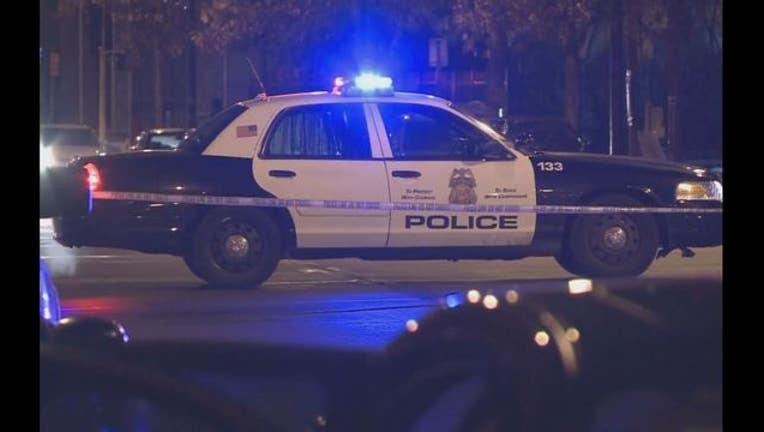Report: Minneapolis police urged EMS to sedate subjects with ketamine

MINNEAPOLIS (AP) - A city report shows Minneapolis police officers have repeatedly requested that Hennepin County medical responders sedate people with ketamine, a powerful tranquilizer known as a "date rape drug."
The draft report obtained by the Star Tribune says that in multiple instances, the ketamine caused heart or breathing failure and suspects had to be revived or intubated.
The investigation by the Office of Police Conduct Review found the number of documented ketamine injections during Minneapolis police calls increased from three in 2012 to 62 last year.
Hennepin EMS Medical Director Jon Cole and Minnesota Poison Control System Medical Director Jeffrey Ho dismissed the report's findings as a "reckless use of anecdotes" and incomplete information that draws uninformed and incorrect conclusions.
But Minneapolis Police Chief Medaria Arradondo says the report led to a policy change at his department. As the report was being completed last month, Cmdr. Todd Sauvageau issued a departmental order saying that officers shall never demand that EMS sedate a subject, and that those decisions need to be made by EMS personnel, not officers.
"We have that in place now," Arradondo said. "That policy really defines and clarifies that we do not want our officers providing recommendations or suggestions to EMS personnel."
Hennepin Healthcare EMS personnel have been using ketamine since 2008 and staff are authorized to use it when a patient is "profoundly agitated," can't be restrained and a danger to themselves or others, according to their policy.
But the report found that in many cases, the individual being detained "was not only handcuffed, but strapped down on a stretcher in an ambulance before receiving ketamine."
As part of its investigation, the Office of Police Conduct Review looked for mentions of the drug in police reports, and then reviewed body camera footage. The report found instances in which officers instructed medical staff to administer the ketamine.
"Between 2016 and 2017, MPD officers explicitly asked EMS to provide ketamine, either when calling for EMS services or upon arrival of the ambulance eight times," the report says.
In one case, police and EMS workers responded to a call about a man who appeared to be having a mental health crisis. Four Minneapolis police officers and two EMS personnel responded and decided to sedate the man, who protested.
The report says the man was injected twice, secured to a chair and became nonverbal. When he began to regain consciousness, the officer asked the EMS responder how much ketamine he had with him.
"I can draw more," said the EMS worker.
"You're my favorite," replied the officer.
They injected him with another dose, and the man stopped breathing on the way to the hospital, according to the report. He began breathing again later.
In a statement Thursday, Kelly Spratt, chief ambulatory officer for Hennepin Healthcare, said ketamine has fewer side effects than other drugs and can save lives. He said the draft contains inaccuracies, but he did not elaborate.
STATEMENT FROM POLICE CHIEF MEDARIA ARRADONDO
"Today a local media outlet published an article regarding MPD Officers and their actions during calls for service involving hospital EMS personnel. The information released was based on a draft report created by the Office of Police Conduct Review. It is important to know that this report was not complete and devoid of any input from medical personnel.
"This draft report focused on MPD Officers’ suggestions and recommendations to EMS personnel regarding the use of the drug ketamine on members of the community.
"The MPD is committed to our procedural justice service to our community.
"We give voice, respect, build spaces of trust and are neutral in our engagements. A portion of the draft report contained elements regarding language and statements made by some MPD officers that do not reflect our core values. When this matter was brought to my attention, I took immediate steps and made a policy change prohibiting Officers from making medical suggestions or recommendations to EMS staff through both policy and administrative announcement.
"Releasing the contents from this draft report before its completion was irresponsible.
"There are significant faults with this draft report, and recklessly disseminating it to our communities is a disservice to those who not only rely upon receiving accurate information – but also put their trust in our police services. This inaccurate draft report has the potential to tarnish much of the good work the men and women of the MPD, as well as our medical partners, do every day and night to save lives in our city.
"There are thousands of medical-related calls that MPD Officers respond to along with our medical partners in our city every year. There are countless lives that are saved because of the professionalism and life-saving skills and treatment that they provide.
"When the OPCR final report is complete, it will be made available to the public for review.
"This is important and something I strongly believe in. It is also my hope that the media outlet that released this incomplete draft report will be responsible enough to correct the record to reflect the true facts in this matter."

